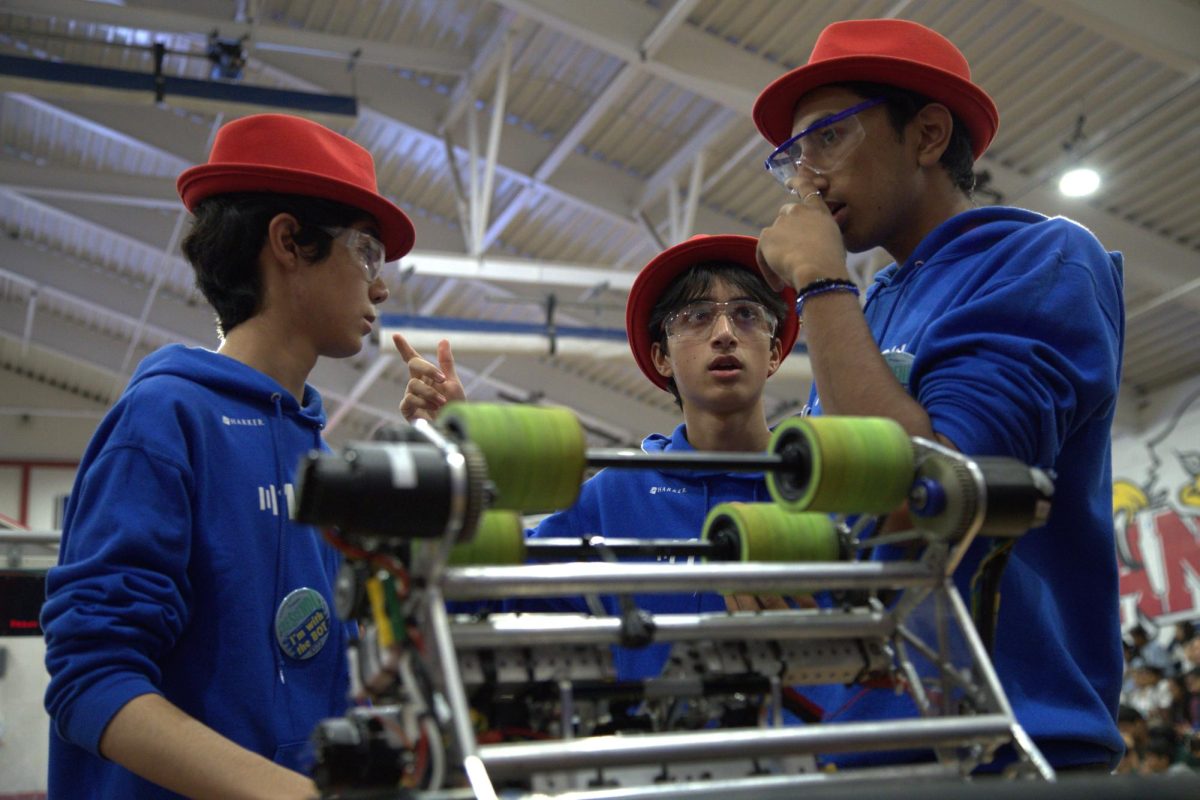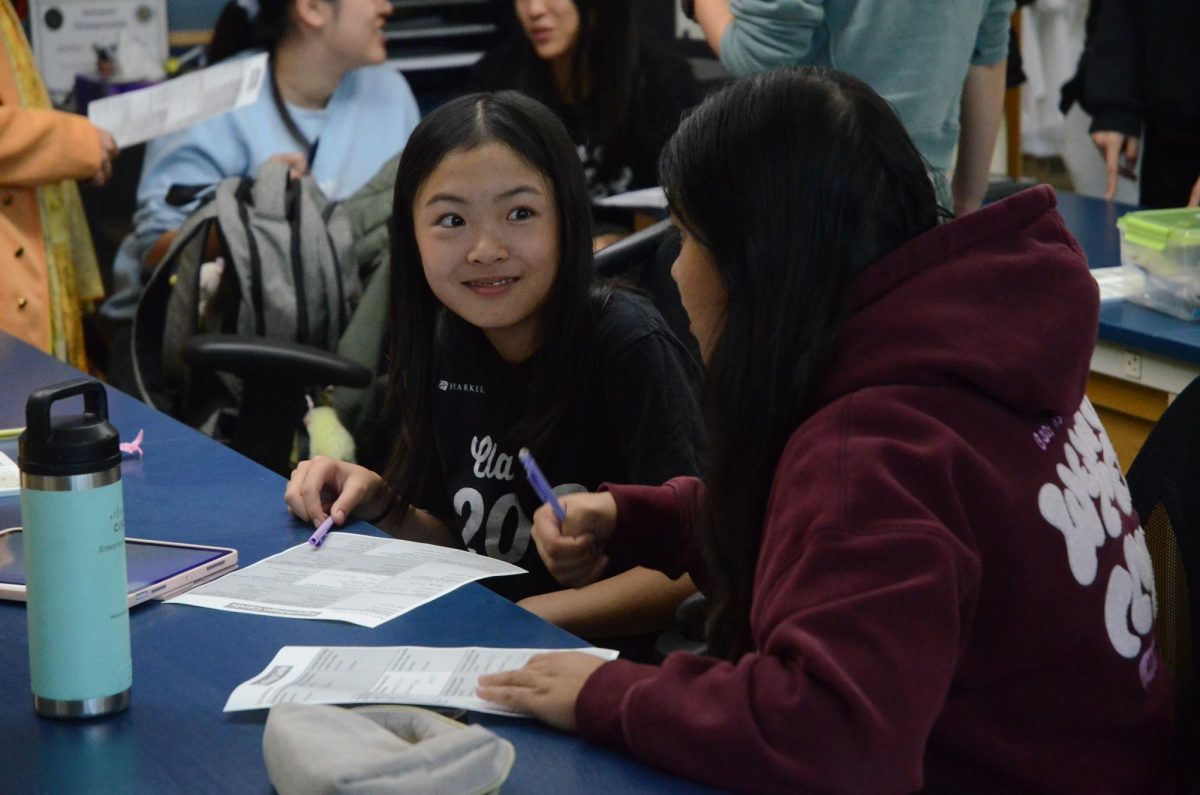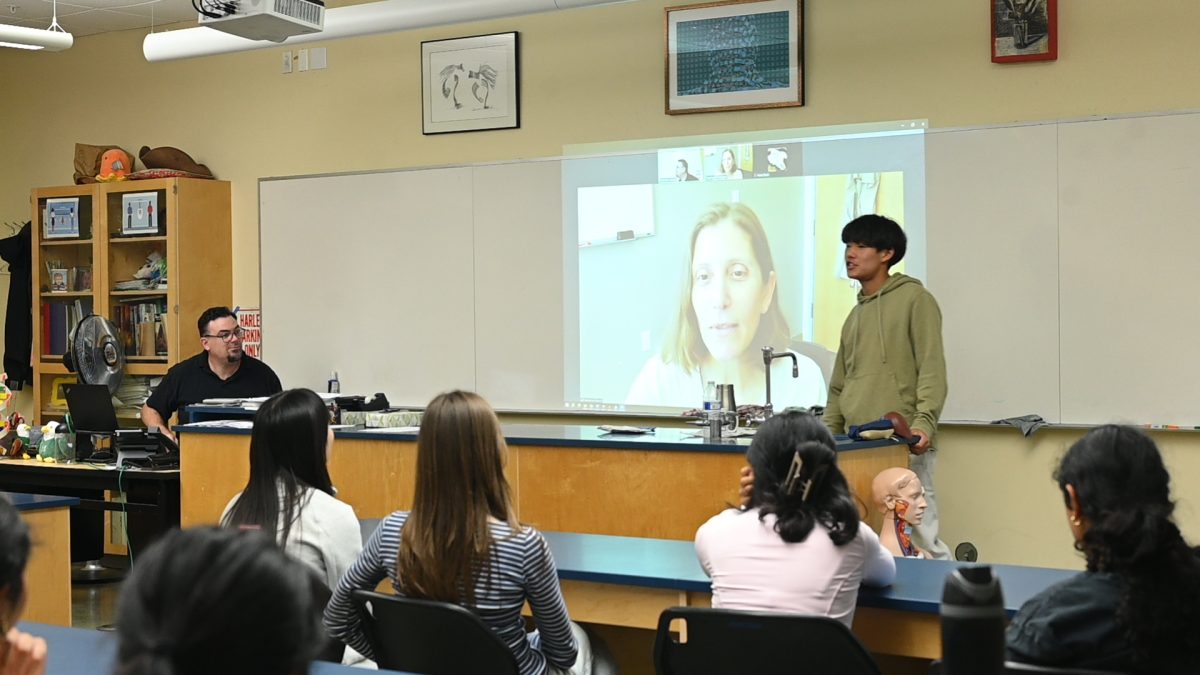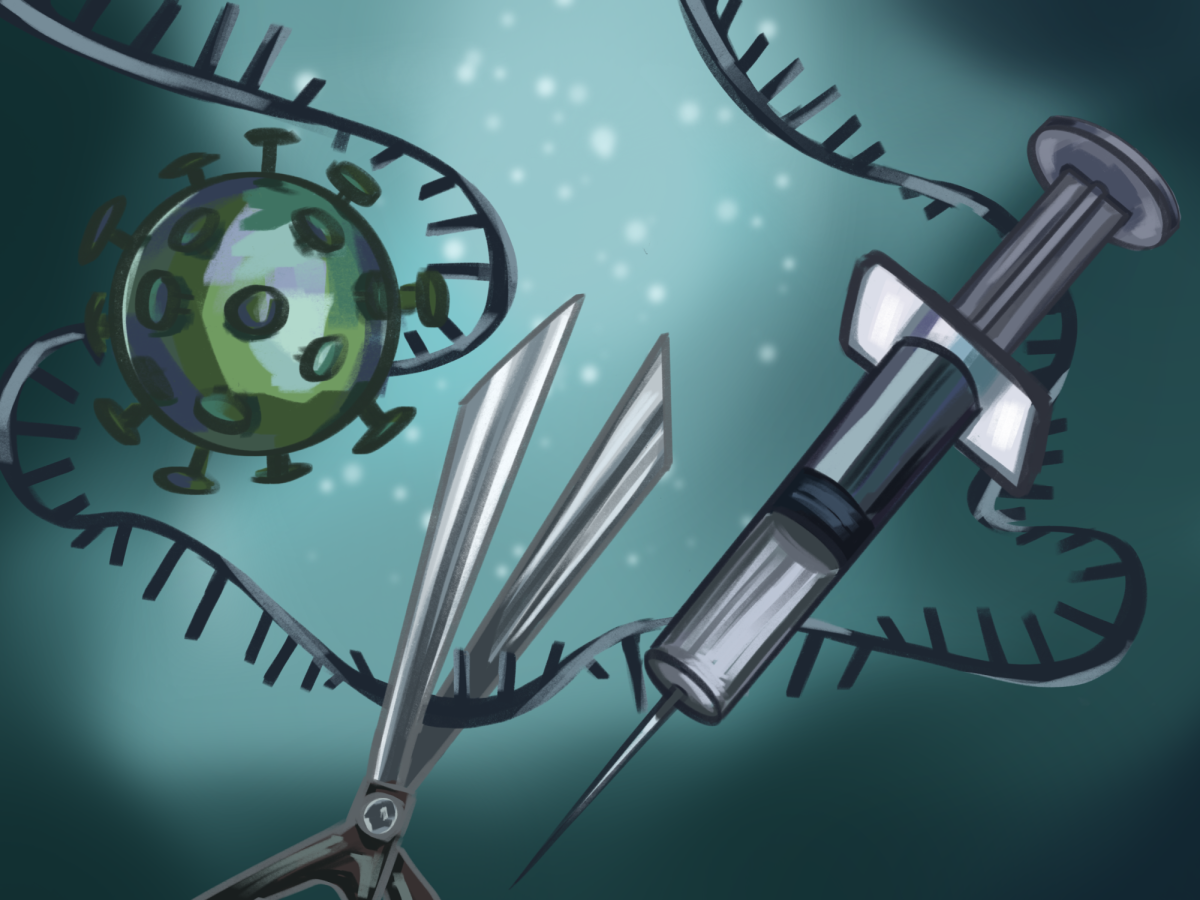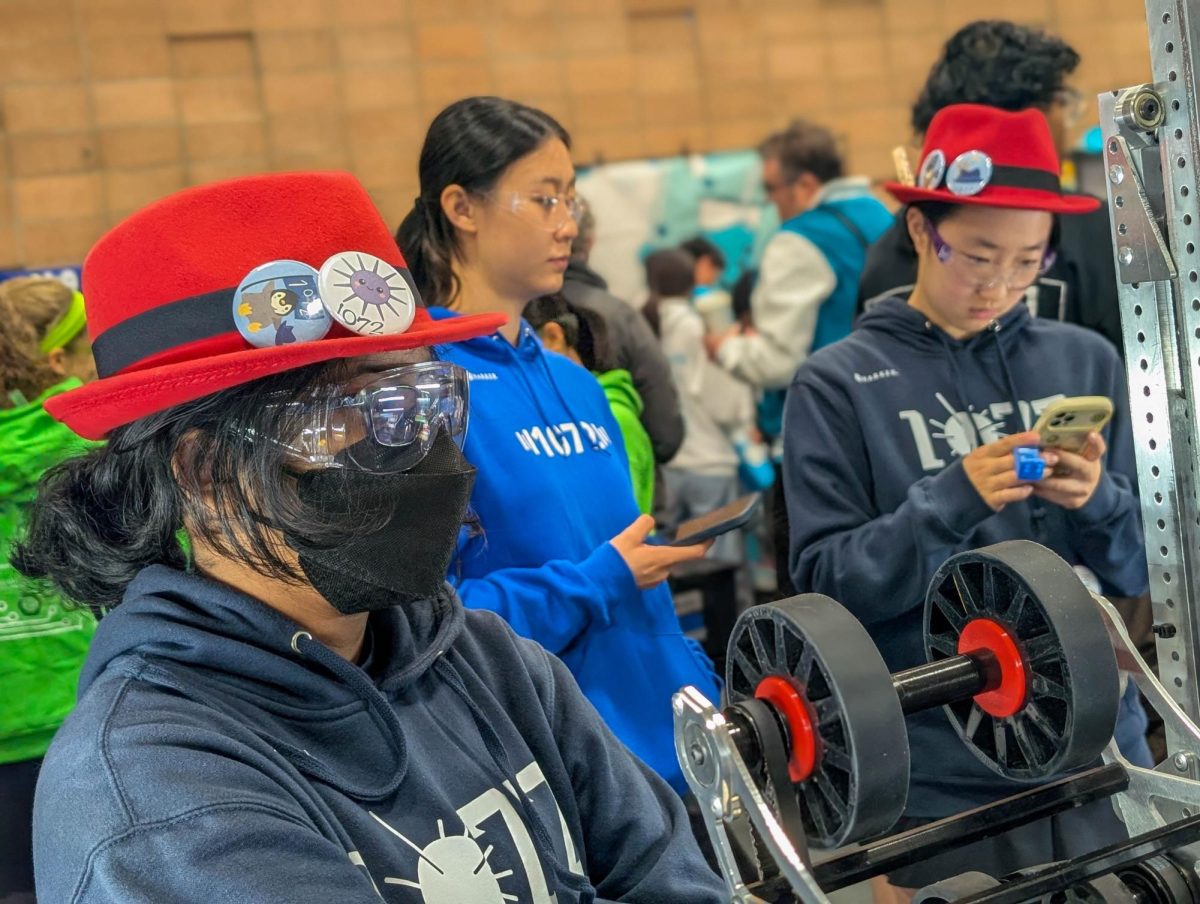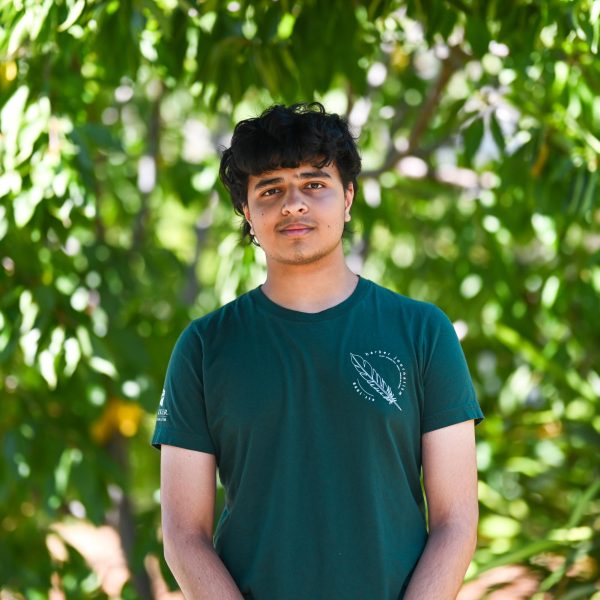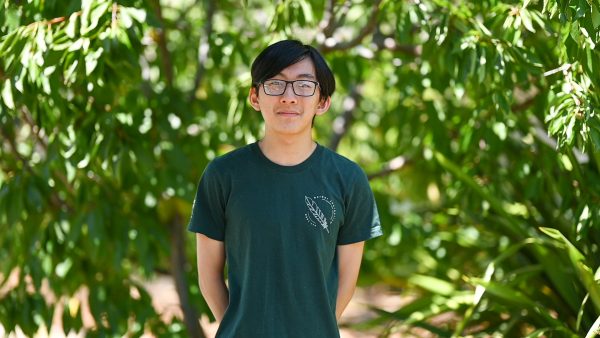Harker Robotics placed second at this year’s Capital City Classic alongside alliance partners Eagle Force, Duncan Dynamics and Robodores at Pleasant Grove High School in Elk Grove, Calif. from Oct. 26 to 27.
The competition hosted 51 robotics teams from across California. In this year’s challenge, “Crescendo,” each alliance shot rings into a speaker element to score, slotted them into a slit to speed up scoring and climbed a metal chain for extra points.
On the first day of the event, mechanical and software faults led to the team ranking in the bottom half of all teams. The team fixed most of the major issues and drastically improved the robot’s performance by the next day, resulting in the fourth alliance selecting Harker Robotics and making the playoffs.
Scouting director Arturo Vilalta (11) managed the process of alliance selection by analyzing other teams’ advantages and pitching Harker’s robot to stronger teams. Despite the robots’ challenges, the team’s tenacious attitude allowed them to keep up their competing spirit, ultimately leading to their strong finish.
“Our perseverance was the most critical part of this entire experience, and it’s definitely one of the values that defines Harker robotics as a whole,” Arturo said. “We came back from a tough first day of matches to place really well in the playoffs, and that holds a lot of value in itself.”
After losing the first playoff match, Harker Robotics’ alliance won the next four games and reached the finals. However, the team ultimately lost to the winning alliance of Citrus Circuits, Bread and The Funky Monkeys,
Mechanical and machining lead Luka Degoricija (10) highlighted how his first competition experience helped bolster his teamwork skills in preparation for the on-season starting in January.
“This was my first competition, and it was a really great experience and I met a lot of great people,” Luka said. “It made me a better team player as it required a lot more teamwork than normal, and we needed to work together to make everything smooth.”
Executive president Deeya Verma (12) added that the team would simplify the robot next year to reduce the potential for technical issues. Building a less complex robot will enable the team to spend more time testing the robot ahead of competitions.
“When we’re designing our robot, we want to take into account our capabilities,” Deeya said. “Designing a simpler robot will be optimal for our team, especially since we’re going to two regionals where we have a pretty good shot of qualifying for the world championships. We just want to focus on something and do that really well.”


















![“[Building nerf blasters] became this outlet of creativity for me that hasn't been matched by anything else. The process [of] making a build complete to your desire is such a painstakingly difficult process, but I've had to learn from [the skills needed from] soldering to proper painting. There's so many different options for everything, if you think about it, it exists. The best part is [that] if it doesn't exist, you can build it yourself," Ishaan Parate said.](https://harkeraquila.com/wp-content/uploads/2022/08/DSC_8149-900x604.jpg)




![“When I came into high school, I was ready to be a follower. But DECA was a game changer for me. It helped me overcome my fear of public speaking, and it's played such a major role in who I've become today. To be able to successfully lead a chapter of 150 students, an officer team and be one of the upperclassmen I once really admired is something I'm [really] proud of,” Anvitha Tummala ('21) said.](https://harkeraquila.com/wp-content/uploads/2021/07/Screen-Shot-2021-07-25-at-9.50.05-AM-900x594.png)







![“I think getting up in the morning and having a sense of purpose [is exciting]. I think without a certain amount of drive, life is kind of obsolete and mundane, and I think having that every single day is what makes each day unique and kind of makes life exciting,” Neymika Jain (12) said.](https://harkeraquila.com/wp-content/uploads/2017/06/Screen-Shot-2017-06-03-at-4.54.16-PM.png)








![“My slogan is ‘slow feet, don’t eat, and I’m hungry.’ You need to run fast to get where you are–you aren't going to get those championships if you aren't fast,” Angel Cervantes (12) said. “I want to do well in school on my tests and in track and win championships for my team. I live by that, [and] I can do that anywhere: in the classroom or on the field.”](https://harkeraquila.com/wp-content/uploads/2018/06/DSC5146-900x601.jpg)
![“[Volleyball has] taught me how to fall correctly, and another thing it taught is that you don’t have to be the best at something to be good at it. If you just hit the ball in a smart way, then it still scores points and you’re good at it. You could be a background player and still make a much bigger impact on the team than you would think,” Anya Gert (’20) said.](https://harkeraquila.com/wp-content/uploads/2020/06/AnnaGert_JinTuan_HoHPhotoEdited-600x900.jpeg)

![“I'm not nearly there yet, but [my confidence has] definitely been getting better since I was pretty shy and timid coming into Harker my freshman year. I know that there's a lot of people that are really confident in what they do, and I really admire them. Everyone's so driven and that has really pushed me to kind of try to find my own place in high school and be more confident,” Alyssa Huang (’20) said.](https://harkeraquila.com/wp-content/uploads/2020/06/AlyssaHuang_EmilyChen_HoHPhoto-900x749.jpeg)



